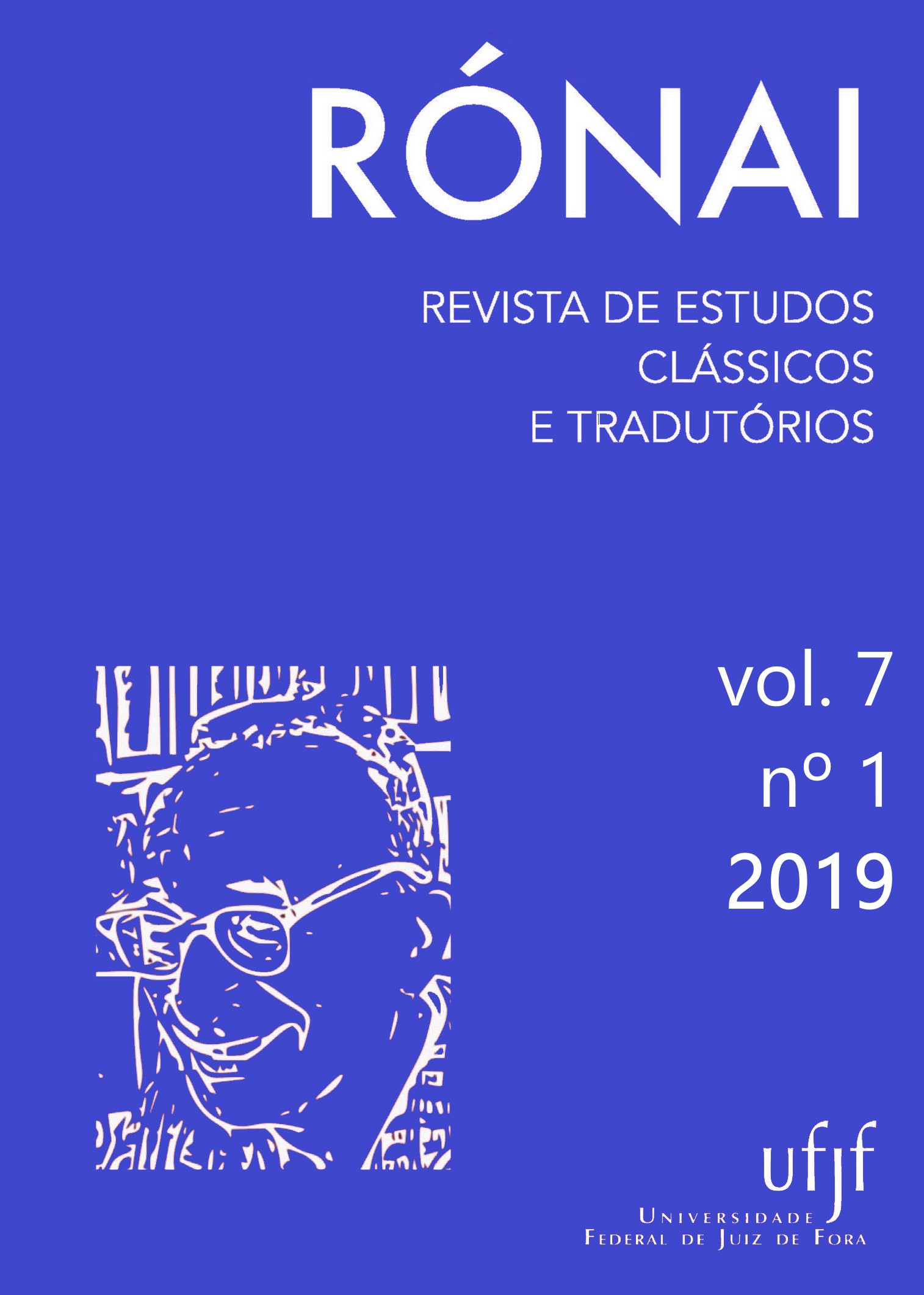Reflections on the reception of medicine in the work of Pliny the Elder
DOI:
https://doi.org/10.34019/2318-3446.2019.v7.23284Keywords:
Natural History, medicine, reception, scienceAbstract
Romans, since their origins, had subsidies of a domestic medicine. Medicine, however, had for years evolved into science in Greece – according to Canali (2001), we can establish the “birth of science” in the 6th century B.C. –, and, when it came to Rome, it encountered some resistance to establish itself there. We intend to show how the reception of medicine occurred since its arrival at Rome, around the 3rd century B.C., until Pliny’s time and how it linked itself with ancient domestic treatments, by using Pliny’s Natural History, which is the most complete source for the studies of Romans’ history of medicine. In addition, the works of Doody (2011), Miglioni (1997), and Van der Eijk (1999) deepen Pliny’s relationship with medicine.
Downloads
References
CANALI, L. Vita di Plinio ovvero l’arte della meraviglia. Milano: Ponte alle Grazie, 2001.
DAUZAT, Pierre-Emmanuel. Introduction. In: PLINE L’ANCIEN. Histoire naturelle XXXIII. Nature des métaux. Texte établi et traduit par Hubert Zehnacker. Paris: Les Belles Lettres, 2002.
DOODY, Aude. The science and aesthetics of names in the Natural History. In: GIBSON, Roy K. & MORELLO, Ruth (Ed.). Pliny the Elder: themes and contexts. Leiden; Boston: Brill, 2011, p. 113-129.
GAILLARD-SEUX, Patricia. À propos des livres XXVIII-XXIX-XXX de l’Histoire Naturelle de Pline l’Anecien. Latomus, 57 (3), p. 625-633, 1998.
MIGLIONNI, Paola. Scienza e terminologia medica nella letteratura latina di età neroniana: Seneca, Lucano, Persio, Petronio. Frankfurt am Main; Berlin; Bern; New York; Paris; Wein: Lang, 1997.
NUTTON, V. The perils of patriotism: Pliny and Roman medicine. In: FRENCH, Roger; GRENAWAY, Frank (Eds.). Science in the early Roman Empire. London & Sydney: Croom Helm, 1986, p. 30-58.
PAYNE, J. F. Roman natural history and science, and Roman medicine. Cambridge: Cambridge University Press, 1910.
PLINE L’ANCIEN. Histoire naturelle XXIX. Texte établi, traduit et commenté par A. Ernout. Paris: Les Belles Lettres, 1962.
_________. Histoire naturelle XXX. Texte établi, traduit et commenté par A. Ernout. Introduction et notes par Sabina Crippa. Paris: Les Belles Lettres, 2003.
SOUSA, Maria A. S. M. A arte médica em Roma antiga nos De Medicina de Celso. Ágora. Estudos Clássicos em Debate 7, p. 81-104, 2005.
SPALLICI, Aldo. I medici e la medicina in Plinio, il naturalista. Milano: a cura della S. A. Giovanni Scalcerle, 1936.
VAN DER EIJK, Philip. Historical awareness, historiography and doxography in Greek and Roman medicine. In: VAN DER EIJK, P. (Ed.). Ancient histories of medicine. Essays in medical doxography and historiography in Classical Antiquity. Vol. 20. Leiden; Boston; Köln: Brill, 1999. p. 1-31.
Downloads
Published
How to Cite
Issue
Section
License
Copyright (c) 2019 Ana Thereza Vieira

This work is licensed under a Creative Commons Attribution 4.0 International License.
Copyright
The authors of the published contributions agree with the following items:
1. The authors keep the copyright and convey to the journal the right of first publication, the work being licensed under a Creative Commons Attribution License 4.0 International.
2. The authors are allowed and stimulated to publicize and distribute their work online after the publication in the journal, recognizing first publication in this journal.
3. The authors of the approved works authorize the journal to distribute their content, after publication, for reproduction in content indexes, virtual libraries and similars.
For more information about Creative Commons Attribution License 4.0 International, please, go to: https://creativecommons.org/licenses/by/4.0/deed.en
Editorial exemption
The authors of the published contributions are entirely and exclusively responsible for their contents. Its content does not represent an official position of Rónai - Revista de Estudos Clássicos e Tradutórios neither of Faculdade de Letras da Universidade Federal de Juiz de Fora or their partner institutions.



